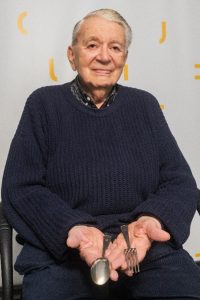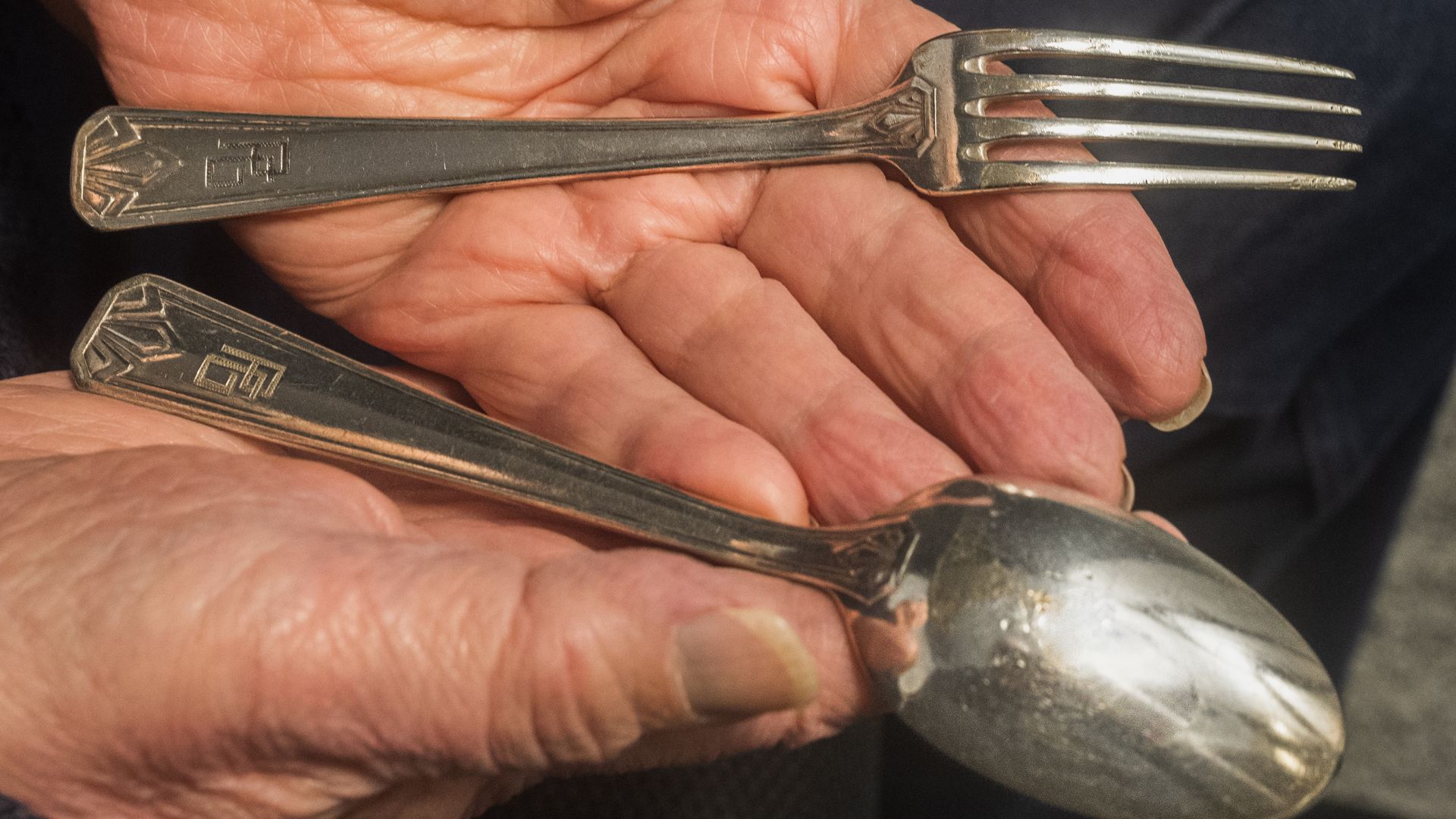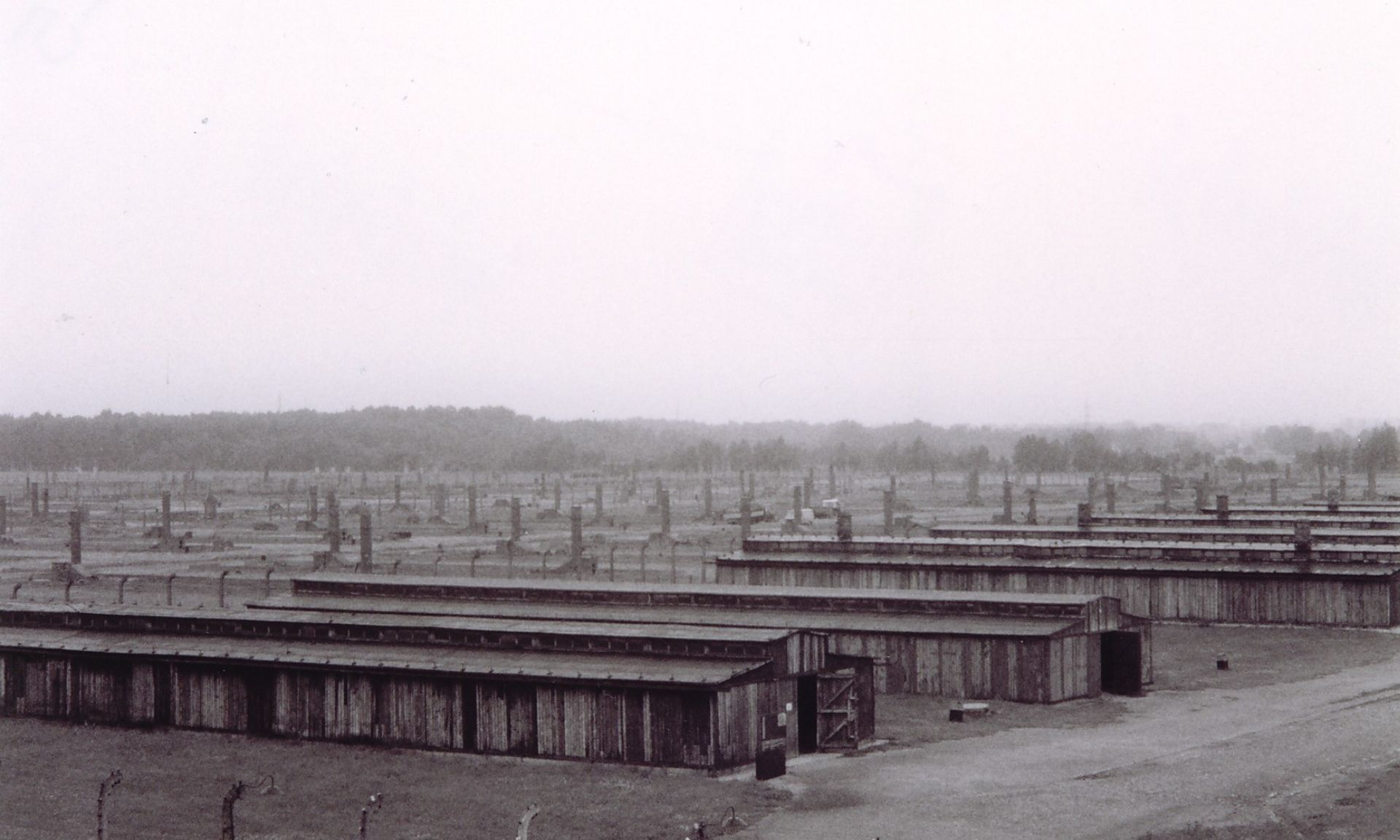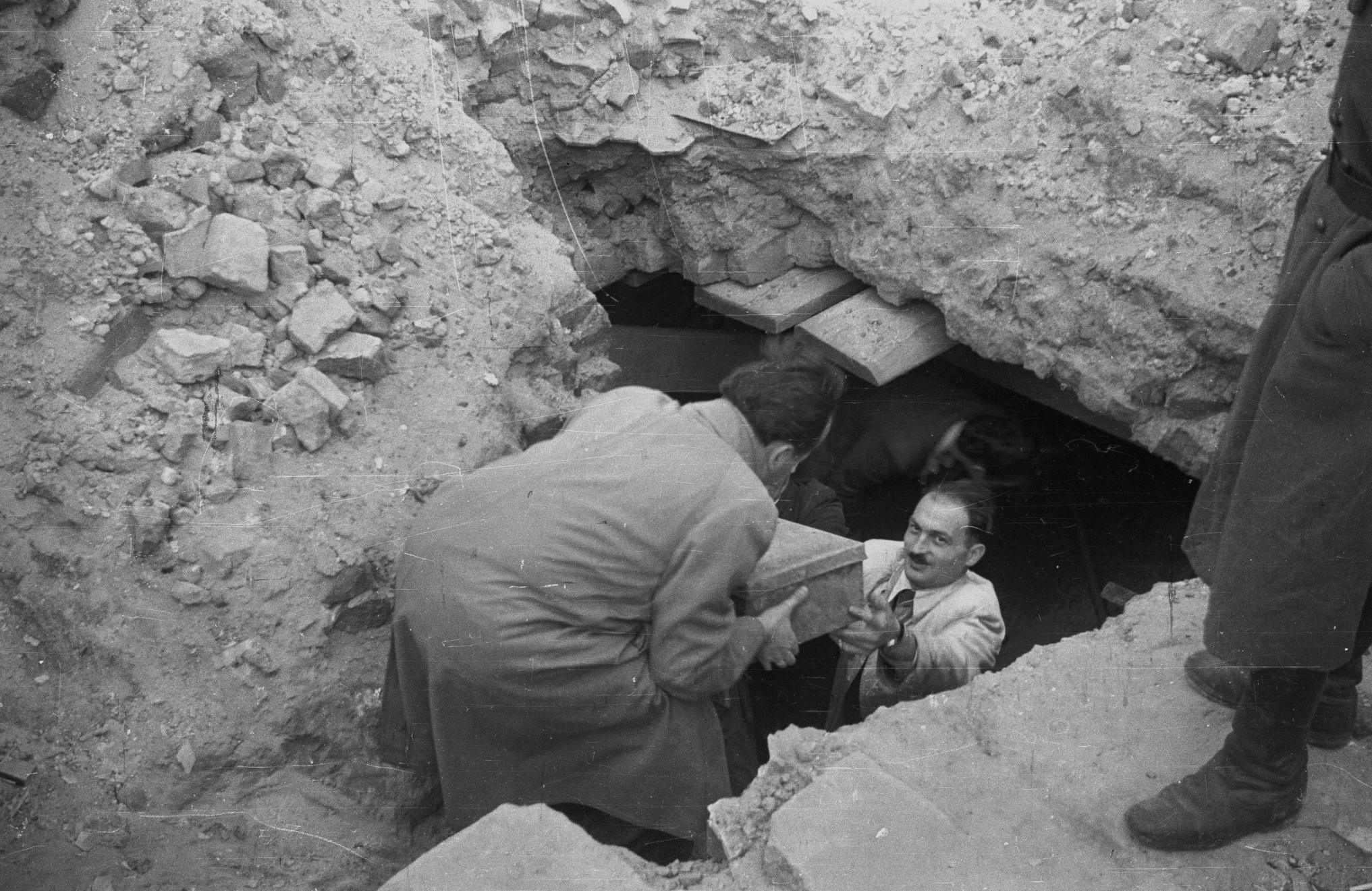Holocaust survivor Paul Grinwald was born in Paris, France in 1933, to a traditional family who observed Jewish holidays. Paul attended kindergarten in Paris from age three and went to government schools later. He loved school and was an avid reader.
On his sixth birthday, his aunt Chana Milechman gifted him a cutlery set – a fork, knife and spoon – engraved with his initials. He still remembers the day clearly – his aunt and her children were all present at the luncheon.

“I loved it [the cutlery set], I used to eat with it all the time until I was nine years old.”
In 1942 Paul and his family made the difficult decision to flee their apartment in Paris and cross the demarcation line to Vichy France. When I was nine years old, we had to leave Paris in a hurry. We were told to leave everything behind, we were not to take anything with us, because we would be crawling under barbed wire for quite a while, and we did not want to be weighed down by anything.”
Paul left his possessions behind in Paris, including the cutlery set that he had received from his aunt. He treasured the cutlery, but knowing they would weigh them down, he left them behind. Or so he thought.
For approximately one year, Paul and his sister Suzanne were placed on a farm in France where they worked, pretending to be Christians. When the money their parents supplied the farmers to care for them ran out, they went into hiding with their parents until liberation.
After the war, Paul found out that his aunt and her children were murdered in the gas chambers of Auschwitz. The family moved back to Paris for a brief period before immigrating to Australia in November 1946.



